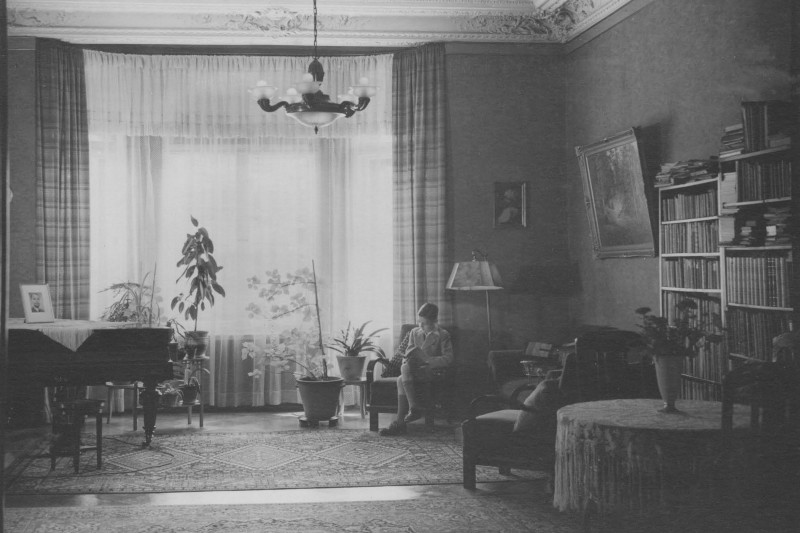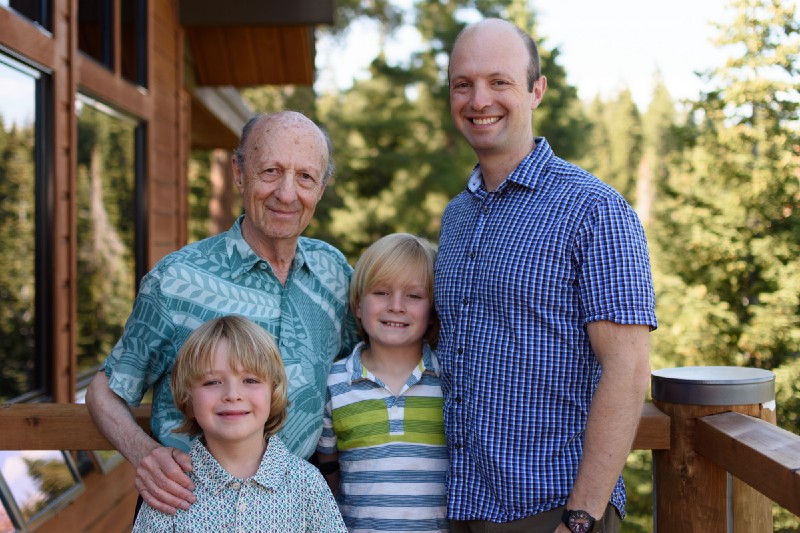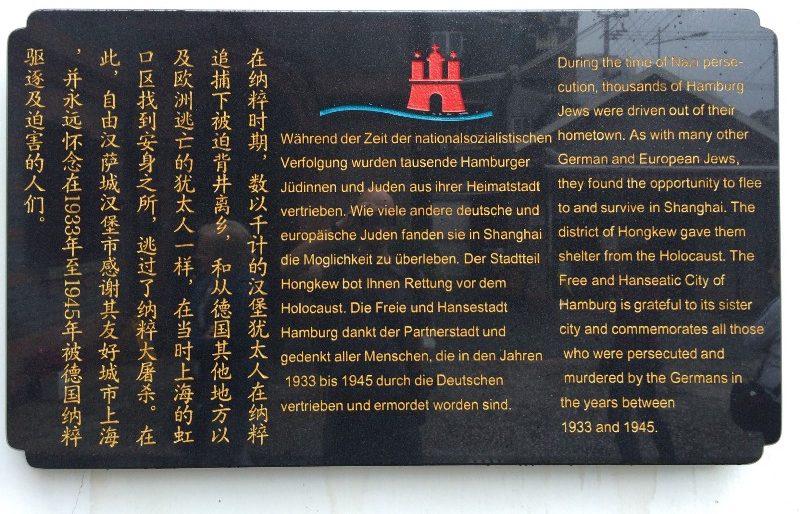A post from Tea Collection CEO and co-founder, Leigh Rawdon.
This is Rudi. Age 11. Loves reading. Loves music, especially listening to his parents and their friends singing and playing piano or violin or bass. He generally gets along with his brother, and he appreciates the home his parents have made for their family.

Rudi is proud of his dad, a doctor, who served in the first World War as a medic, taking care of fellow Germans. He enjoys the family’s traditions such as the humor from the annual search for matzah at Passover. He has a lot in common with most kids we know.
I’ve seen this picture and heard these stories, and I always put myself in Rudi’s shoes. But now, as a mother of a ten-year-old, I see myself in Rudi’s mom.
It was 1939. Rudi’s mom and her husband had paid attention to the small yet steady changes. First, they weren’t welcome to attend the opera (but sometimes Rudi could sneak in on his own). Her husband was only allowed to care for Jewish patients. And then they had to leave the spacious apartment in the photograph above to live in a one room sub-let. With each change, they adapted their lives — but they were paying attention. Eventually they recognized they had to leave Germany. It was no longer safe for Jews.
Tickets to countries that would open their borders to German Jews were getting harder and harder to come by. They found a home for one child in England as part of the Kindertransport, a program where English families took in children refugees. But just one spot. Just one child.
Rudi’s parents had to make a choice. A choice of which son they would send to England for safety and for better chances to have a full, long life. Imagine that choice. Imagine that choice in the context of knowing that you had no way of knowing how — or if — you would ever see this child again. Imagine a mother, putting her child on a train, by that time 12 years old, not speaking English, a train headed to foreign country — and eventually into the arms of strangers.
They chose Rudi.
Rudi is my father-in-law.

The rest of the family was able to escape Germany shortly thereafter, on a boat originally destined for Manchuria until Manchuria closed its borders and the boat docked in Shanghai. Rudi’s parents and brother stayed in Shanghai, in the Jewish Ghetto. They remained there until the family of four reunited in San Francisco in 1949 — ten years separated from their younger son with only an occasional and much delayed Red Cross letter of communication between them. Imagine.

Nearly every one of us has a refugee or immigration story that is deeply personal and profoundly impactful to our lives here today. These stories, these histories, underline the imperative of honoring our common humanity with a special, powerful emphasis on helping children.
The Executive Director of UNICEF has her own personal story that is undoubtedly a force for her in her work to help children like Rudi, like her own mother and Uncle. In the first half of 2016, 26,000 children arrived on the US border alone, without a parent or even an adult. More than half of all refugees are children. And nearly 90% of all refugees live in developing countries.
The magnitude of need is overwhelming. The personal donation I can make feels like only a drop in the bucket. This can be discouraging. But here’s what matters: every little drop in the bucket. The drops eventually add up — and even that one, single drop could help one person who will one day grow up and have a family who will do the same for another family.
At Tea, we are and always have been here “for little citizens of the world.” It has been our tagline before we sold our first sweater. These refugee children escaping violence and unrest are citizens of the world. We will do our part.
“We know there is more to every culture than beloved landmarks and handicrafts. There is also need. There is vulnerability. So wherever we are, we strive to be mindful and responsible. We want to make real connections – and a real difference.”
We will do our part with our words — but most importantly with our actions.
Our long-time partner, the Global Fund for Children, funds organizations on the ground working with refugees. The GFC stands behind local, on-the-ground leaders who know best what their communities need and how to help.
For example, the GFC funds Tahaddi, an organization in Beirut that supports more than 800 Syrian families. They are expanding shelters and adding more education and programs to meet the growing needs of refugee families including family-tracing services for children who arrive alone and counseling for children coping with trauma. Let’s help them.

Tahaddi is only one example. Needless to say, the Global Fund for Children, like many humanitarian groups, is hard at work, on the ground, and galvanizing support and impact given the world context right now. We will help.
Here’s the plan:
- We’re matching all donations to support refugee children. When Tea customers make donations through our website, we will match their donations. Together, with our customer Tea community, we should be able to donate $20,000 or $30,000 to make a difference — and soon.
- We’ve created a new online shop to raise money for refugee children. It’s called the Little Citizens of the World Shop. We’ve merchandised our Little Citizen tees and our Citizens FC program in the short term. In the long term, we’ll create additional items into the assortment to be sure that every Tea customer finds a way to participate. We will then donate 100% of proceeds, no limit, from every item purchased in the Little Citizens of the World Shop to support little citizens of the world. We’ve launched the shop in support of refugee children through the work of the GFC partners on the ground. While refugees and immigrants are in the news right now, there will most certainly be need for a long time — and we will be there doing our part.
- We will highlight the helpers who are there for little citizens of the world (like Mr. Rogers said). Our Marketing team is putting together a plan (collaboration and feedback welcome and encouraged). We’ll celebrate the work of the organizations helping refugee children, we’ll share book lists that librarians have put together for kids, and we’ll tell stories to encourage our community to give back. On our website, our blog, social media — and in any place we can help. We’ll stand behind our original statement “for little citizens of the world” by sharing graphics, both those that exist already and any new that our Tea community creates. Maybe we’ll use one of these for a new tee or a poster in our boutiques’ windows or for postcards.
Our work at Tea matters. We have always focused on doing what we do for little citizens of the world. These important issues aren’t new or partisan or political. They are humanitarian.
At Tea, we believe that we all share a common humanity. We aspire every day to nurture curiosity, to encourage openness, and to create connections across borders, figurative and literal. These connections inspire us to stand up and do our part to help those most in need right now — the little citizens of the world. Let’s put some drops in the bucket.



